Hi!
Due to product requirements, I need to make the broadcast package contain 128-bit UUID so that the APP of our company can identify the device. The chips of other manufacturers were used to realize this function, but the following problems occurred after replacing Nordic:
SDK: NRF5_SDK_17.1.0_DDDE560, routines: examples\ ble_Peripheral \ble_app_uart.
1.In the routine change NUS_BASE_UUID to the base UUID defined by SIG: 0x0000XXXX-0000-1000-8000-00805F9b34Fb
![]()
The change procedure is as follows:
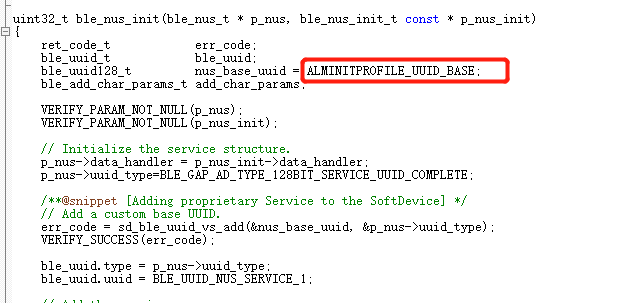
Error parameters are returned during advertising_init initialization
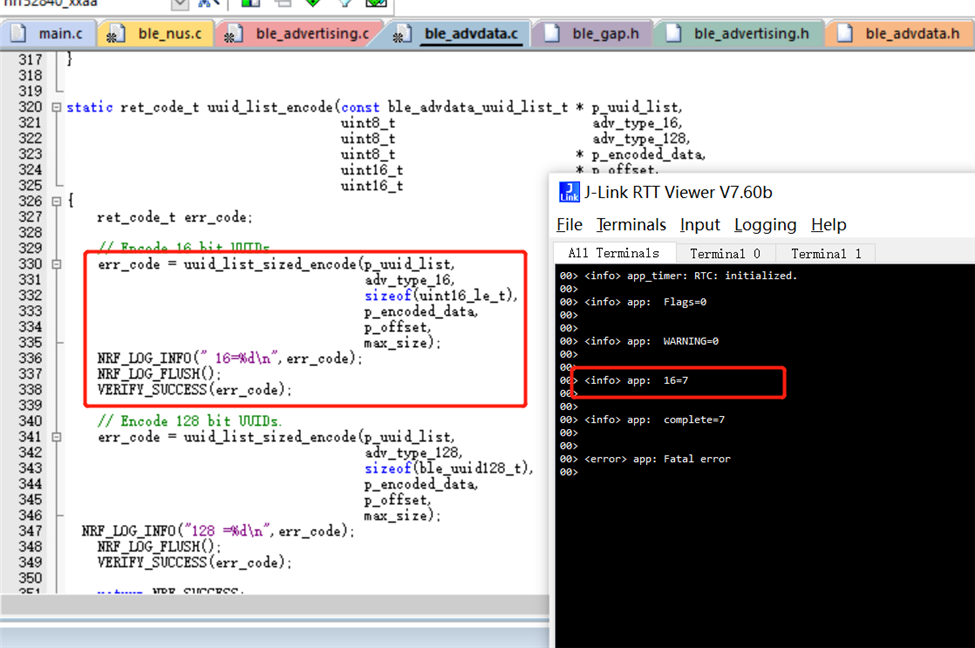

I had to change the broadcast UUID type to 16 bits for proper initialization, both from BLE_UUID_TYPE_VENDOR_BEGIN to BLE_UUID_TYPE_BLE
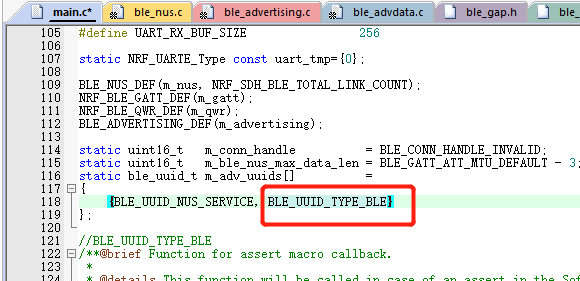
Using NRF Connect to scan only 16-bit UUID,
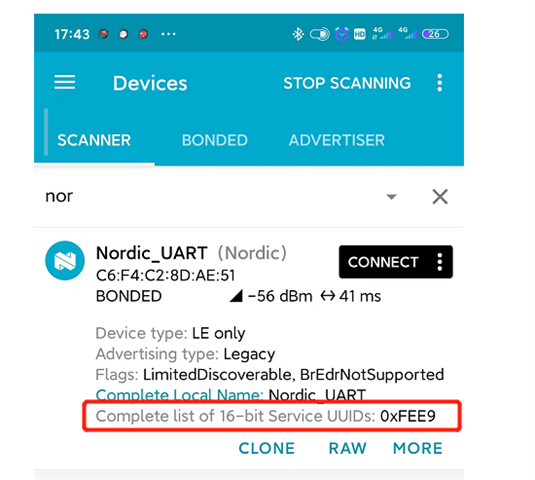
This makes it impossible to scan connections using our company's APP, which only recognizes 128-bit UUID. Below is the UUID broadcast by chips from other manufacturers, which needs to be 128 bits to connect with our APP.
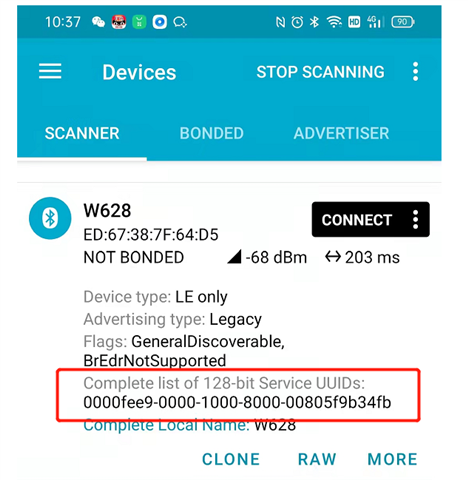
How can I set up the broadcast package to include the 128-bit base UUID defined by the SIG so that my APP can connect.
Looking forward to your reply.


